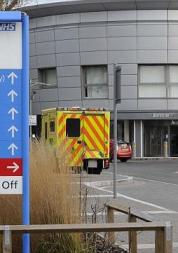Pregnancy, maternity and birth: Experiences of care in Haringey’s seldom heard communities

We asked diverse maternity service-users about their experiences, including hearing from those who are seldom heard, via a survey, interviews, and focus groups.
We collected 33 survey responses. All except two survey respondents were residents of Haringey and most of the respondents lived in the more deprived East of the borough.
We conducted a focus group with three Polish women with the support of House of Polish and East European Community (HoPEC).
We gathered feedback from 18 participants at Christian Action and Response in Society (CARIS) Haringey.
Findings
We asked for feedback on the themes of ‘Communication’, ‘Choice’ and ‘Improvement.
Communication
We found a number of issues around communication. Contacting a midwife was not always easy, and only half reported having a named midwife. There was a lack of information and knowledge on how to self-refer to hospital to receive maternity care.
People who spoke English as a second language were less likely to have been provided with information about pregnancy or birth. Those who asked for translated information or an interpreter did not always receive it. There was a lack of information in people’s first languages.
Choice
The NHS’s understanding of people’s cultural needs was not always consistent. Nearly a third of survey respondents did not ‘always’ feel able to raise concerns.
In terms of care received, people rated ante-natal care best followed by care in labour; but people felt less happy about post-natal care. There were gaps in post-natal care including in breastfeeding support and maternal mental health.
There were concerns raised about poor staff attitudes during pregnancy, birth and post-natal care, including an identified need to listen more. Problems were attributed to the pressure of understaffing.
Improvement
There were broadly four categories of improvements requested by respondents. They suggested improvements to Staffing; Staff training / behaviour; Communication; Equipment.
Service users wanted to see improvements in these areas:
- More nurses
- One midwife throughout pregnancy and birth
- More appointments for post-natal care
- More GP face-to-face appointments
- More staff training
- Better staff behaviour
- Better communication
I don't think I was listened to when in active labour. I previously had a fast labour and delivery (2.5 hrs) and I knew my second would be even faster. When I arrived at the hospital the midwife left me and I had to scream for help. 10 mins later the baby arrived.
Healthwatch Haringey recommendations
Healthwatch Haringey’s recommendations are based on insights from the survey, interviews and focus groups.
- Address staffing levels: Staffing levels were a sometimes hidden, sometimes explicit cause of problems with maternity care, and an overarching concern. Respondents who expressed difficulty in contacting a midwife or the maternity department, or not having a named midwife, were likely experiencing the impact of low numbers of midwives and nurses in the hospital maternity department. When giving birth people felt they were left ‘alone’ or without enough nurses to help.
- Make it easier for patients to raise their concerns and ask questions: Maternity and birth do carry a certain amount of risk and are highly significant life events. It is vital that people are able to ask all the questions they need, to understand what is happening, and raise concerns about their own or their baby’s health. But nearly a third of survey respondents did not ‘always’ feel able to raise questions or concerns.
- Enable staff to listen more and improve staff training: Respondents reported problems arising because staff did not listen to them and take their concerns seriously either during pregnancy or during labour. Sometimes people felt staff were being judgemental, rude or unhelpful. More training may be needed to improve patient staff interactions.
- Devote more resources to translated materials and interpretation services: The language barrier can mean increased vulnerability to maternal and fetal illness and stillbirth. We found that people who spoke English as a second language were less likely to have been provided with information about pregnancy or birth. Those who asked for translated information or an interpreter did not always receive it. Improved and more plentiful resources are needed.
- Improve communication about self-referral: There were gaps in communication around self-referral to hospital and some barriers to self-referral. GPs and hospital trusts should work together to make the process easier, particularly for people with English as a second language.
Download
Read the Healthwatch Haringey Report.

